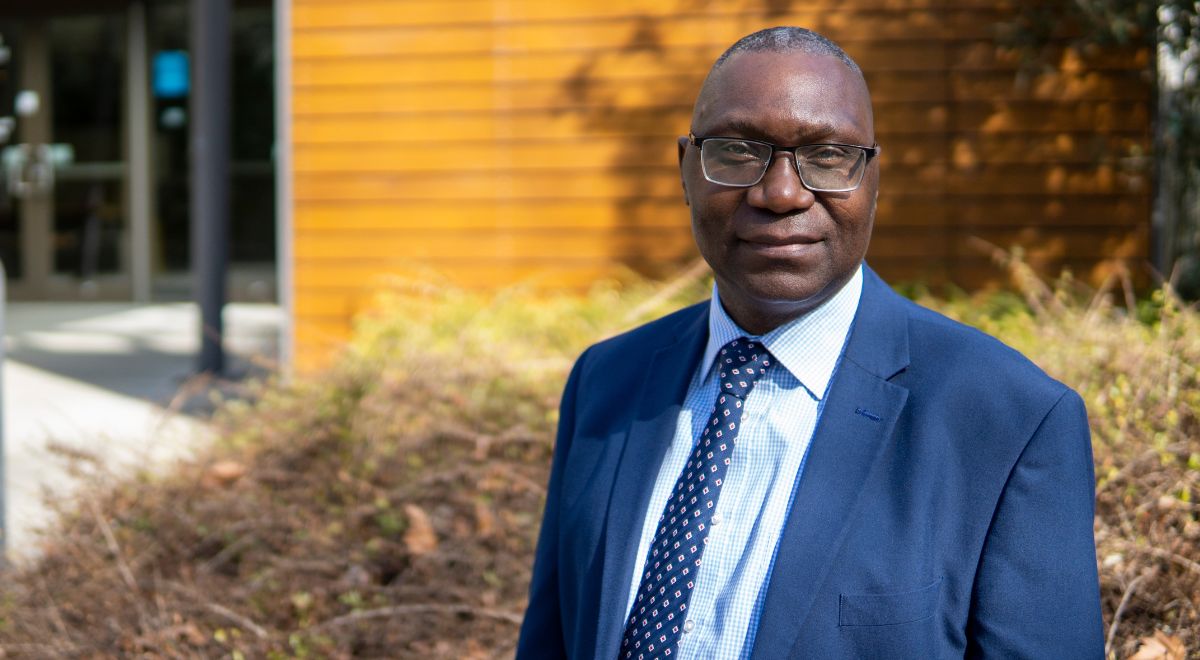
Dr. Khumbo Kalua, an associate professor at UBC’s School of Population and Public Health (SPPH), has been awarded $10,000 in seed funding from the 2024-25 Call for Proposals: Seed Funding for Cooperation with the Global South competition. The funding will support his project aimed at advancing global collaboration in global health education.
Funded by the UBC Academic Excellence Fund and totaling $60,000, the program supports six UBC researchers either initiating new collaborations with partners in the Global South or strengthening existing ones.
“Among the university’s 300-plus formal partnerships worldwide, universities and research institutions in the Global South are underrepresented,” said Cheryl Dumaresq, Office of Global Engagement Executive Director. “These initiatives will help lay the groundwork for long-term, sustainable cooperation addressing shared challenges and advancing knowledge across diverse fields.”
Dr. Khumbo Kalua’s research focuses on Global Health, Global Eye Health and Neglected Tropical Diseases (NTD), within the context of Social Determinants of Health and Universal Health Coverage. He has over 20 years’ experience working in the academic, government and Non-Governmental Organization (NGO).
Dr. Kalua has a special interest in low-income countries and focuses on his research mainly in Sub-Saharan Africa. Current work focuses on epidemiology and elimination of Trachoma, Soil Transmitted Helminthiasis and Schistosomiasis, and global blindness prevention programs, and contributes to the global goal of ending the neglect to attain the Sustainable Development Goals (SDGs).
About Dr. Kalua’s project: Global Health Collaboration between UBC and AMIU
UBC Lead Applicant: Dr. Khumbo Kalua, Associate Professor, UBC School of Population and Public Health, Faculty of Medicine
Partner: Dr. Joachim Osur, Professor and Vice-Chancellor, Amref International University (AMIU), Kenya
This project seeks to establish a long-term collaboration between UBC and AMIU in global health education to advance teaching and learning environments at both institutions. The project offers a unique opportunity for partnership and knowledge exchange in public health education, with a focus on global health. The expertise and resources each institution brings will enrich academic offerings, build capacity and ultimately enhance the impact of graduates of each institution in addressing pressing health challenges across the globe.
Both universities have established a mutual interest in student and faculty exchanges, student practicums, elective courses and joint research funding applications through virtual interactions which have occurred to date. The project will enable a visit to UBC by an AMIU delegation, allowing for face-to-face discussion toward establishing the foundation of the partnership. This will allow researchers from both universities to outline shared objectives and develop an operational plan for the long-term collaboration.
This project will also facilitate guest lectures from AMIU faculty in select courses offered by UBC’s School of Population and Public Health (SPPH). These activities will contribute to the SPPH’s implementation of new courses in global health pertaining to global health ethics, global environmental health and global governance, which are intended to equip graduates with knowledge and skills to advance global health.
Further, this project will enable an interactive, discussion-based global health research seminar featuring multidisciplinary speakers who are dedicated to global health innovation, and form the groundwork to plan a global partners’ workshop focused on identifying and applying for sources of funding to sustain equitable partnerships with the Global South.
The collaboration between UBC and AMIU—based on a shared philosophy of an equitable partnership, decolonization and bilateral exchange of knowledge—will serve as the foundation for bilateral knowledge exchange to support the development of practical solutions at the local, national and international levels.
Read the full announcement on the UBC Office of Global Engagement website.